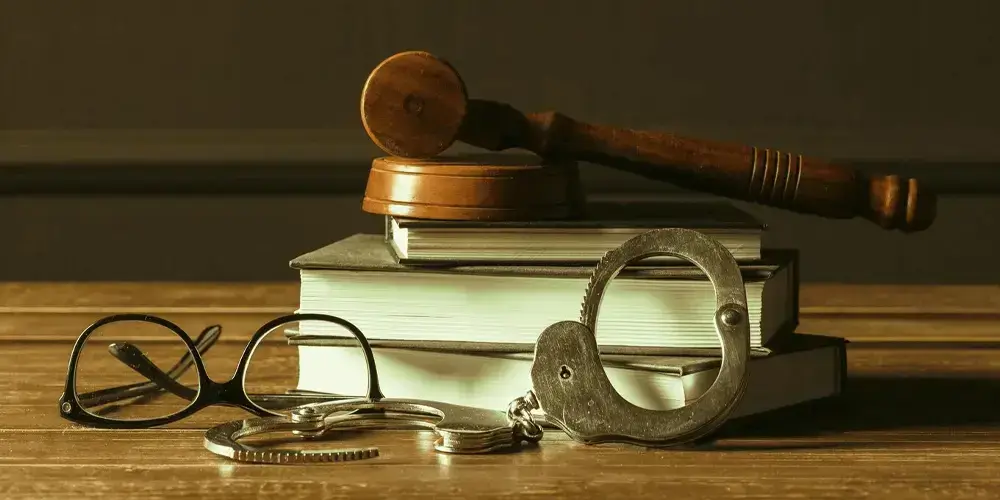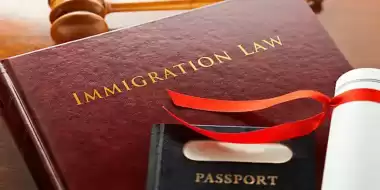

Introduction to Criminal Law: Understanding the Basics
20/03/2024 Wendy Parker 1148
Criminal law is a fundamental aspect of any functioning society, serving as the framework within which society maintains order, protects individuals, and deters wrongdoing. Understanding criminal law involves not only grasping its purpose but also recognizing the intricate workings of the criminal justice system and the crucial role constitutional protections play in safeguarding individual rights.
Explanation of Criminal Law and Its Purpose in Society
Criminal law refers to a body of laws that define criminal offenses and prescribe punishments for those offenses. Its primary purposes are:
-
Deterrence: Criminal law aims to deter individuals from engaging in unlawful behavior by establishing clear penalties for offenses. The threat of punishment acts as a deterrent, discouraging potential offenders from committing crimes.
-
Retribution: It serves a retributive function by ensuring that those who commit crimes are held accountable and punished proportionally to their offenses. This concept is grounded in the belief that offenders deserve to be punished for their wrongdoing.
-
Protection of Society: By identifying and punishing criminal behavior, criminal law protects society from harm. It aims to remove dangerous individuals from the community, thereby enhancing public safety.
-
Rehabilitation: Another important aspect of criminal law is the rehabilitation of offenders. The legal system provides avenues for rehabilitating criminals, enabling them to reintegrate into society as law-abiding citizens.
-
Restitution: Criminal law also seeks to provide restitution to victims, ensuring that they are compensated for their losses whenever possible.
Overview of the Criminal Justice System
The criminal justice system is a complex network of institutions and processes designed to uphold the law, administer justice, and protect citizens. It involves several key players and stages:
1. Law Enforcement
Police: Law enforcement officers are the first point of contact in the criminal justice system. They are responsible for enforcing the law, investigating crimes, collecting evidence, and apprehending suspects. Police officers play a crucial role in maintaining public order and ensuring that justice is served from the outset.
2. Prosecution
Prosecutors: Once a suspect is arrested, the case is handed over to the prosecution. Prosecutors, who represent the state or federal government, are responsible for presenting evidence in court to prove the defendant’s guilt. They decide which cases to pursue, file charges, and argue the state’s case in court. Their goal is to ensure that justice is done while adhering to legal and ethical standards.
3. Defense
Defense Attorneys: Defendants have the right to legal representation. Defense attorneys represent individuals accused of crimes, ensuring that their clients’ rights are protected throughout the legal process. They challenge the prosecution’s evidence, present their own evidence, and argue on behalf of their clients to secure the best possible outcome. Defense attorneys play a vital role in upholding the principle of “innocent until proven guilty.”
4. Judiciary
Judges: Judges oversee the legal proceedings in court. They ensure that trials are conducted fairly and impartially, rule on the admissibility of evidence, provide instructions to juries, and determine sentences for convicted individuals. Judges play a crucial role in interpreting and applying the law, ensuring that justice is administered in accordance with legal principles.
5. Corrections
Correctional System: The correctional system is responsible for carrying out the sentences imposed by the courts. This includes managing prisons, probation, and parole. The goal of the correctional system is not only to punish offenders but also to rehabilitate them, reducing the likelihood of reoffending.
Importance of Understanding Constitutional Protections and Individual Rights
The U.S. Constitution provides a framework of protections and rights for individuals involved in the criminal justice system. Understanding these rights is essential for ensuring that justice is administered fairly and that individuals are protected from abuse of power.
1. Fourth Amendment: Protection Against Unreasonable Searches and Seizures
The Fourth Amendment protects individuals from unreasonable searches and seizures by law enforcement. This means that police must have probable cause and, in many cases, a warrant to conduct searches and make arrests. This protection ensures that individuals’ privacy is respected and that evidence obtained unlawfully cannot be used in court.
2. Fifth Amendment: Right Against Self-Incrimination and Double Jeopardy
The Fifth Amendment provides several important protections:
-
Right Against Self-Incrimination: Individuals cannot be compelled to testify against themselves. This means that defendants have the right to remain silent and cannot be forced to provide evidence that may incriminate them.
-
Double Jeopardy: This clause prevents individuals from being tried twice for the same offense, protecting against multiple prosecutions for the same crime.
3. Sixth Amendment: Right to a Fair Trial
The Sixth Amendment guarantees several rights crucial to a fair trial:
-
Right to a Speedy and Public Trial: Ensures that defendants are tried without undue delay and that trials are open to the public.
-
Right to an Impartial Jury: Defendants have the right to be judged by a jury of their peers.
-
Right to Counsel: Defendants have the right to be represented by an attorney. If they cannot afford one, the state must provide a public defender.
4. Eighth Amendment: Protection Against Cruel and Unusual Punishment
The Eighth Amendment prohibits excessive bail, excessive fines, and cruel and unusual punishment. This ensures that punishments are proportional to the offenses committed and that individuals are not subjected to inhumane treatment.
5. Fourteenth Amendment: Equal Protection and Due Process
The Fourteenth Amendment guarantees equal protection under the law and due process of law. This means that all individuals, regardless of race, gender, or other characteristics, are entitled to fair treatment and legal protections.
Understanding the basics of criminal law, the workings of the criminal justice system, and the constitutional protections afforded to individuals is essential for navigating the legal landscape. Criminal law serves multiple purposes, from deterring crime and protecting society to rehabilitating offenders and ensuring justice. The criminal justice system is a complex network involving law enforcement, prosecutors, defense attorneys, judges, and the correctional system, each playing a crucial role in administering justice.
Moreover, constitutional protections such as those enshrined in the Fourth, Fifth, Sixth, Eighth, and Fourteenth Amendments are vital for safeguarding individual rights and ensuring that the legal process is fair and just. By understanding these principles, individuals can better appreciate the importance of the rule of law and the protections it provides in maintaining a just and orderly society.
Recent Blogs
Building a Diversified Inves ...
26/01/2025 1834
Integrating AI and Machine L ...
24/01/2025 1394
Health Insurance Regulations ...
22/01/2025 2453
Recognizing Signs of Mental ...
20/01/2025 2474
Understanding Employers' Leg ...
18/01/2025 1412
Trending Blogs
Interest Rates: How They Aff ...
20/06/2024 12713
Client Retention: Building S ...
20/06/2024 10761
Introduction to Common Law: ...
21/06/2024 9828
Common Types of Criminal Charges
02/03/2024 8997
Corporate Finance Law: Raisi ...
04/06/2024 8728











